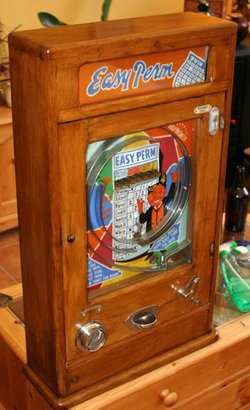- Home
- Replacement Artwork,logos,etc Available
- The Allwin Arcade
- Trade Stimulators
- The Strange & Unusual
- The Aristocrat Collection
- The Bally Collection
- The Bell-Fruit collection
- The BDR/BMR Collection
- The Bryans Collection
- The Buckley collection
- Caille Brothers Collection
- Working Models
- The Groetchen collection
- The Hawtin's Collection
- The Jamieson's Collection
- The Jennings collection
- The Mills Collection
- The NSM (Bingen) Collection
- The Oliver Whales Collection
- The Pace Collection
- The Parkers Collection
- The Rock-ola collection(slot machines)
- The Ruffler & Walker Collection
- The SEGA Collection
- the Shefras collection
- The TH.Bergmann Collection
- The Tom Boland collection
- The Watling collection
- The Whittaker Bros Collection
- the Wondermatics collection
- The Wulff Collection
- The Juke Box Age
- Coin Operated Cranes & Diggers
- Coin Operated Shooting Games
- Coin Operated Weight Scales
- slot machine coins & tokens for sale
- Amusement Arcades from the Past
- The British Seaside Pleasure Pier
- The Market Place
- Coin Operated Related Seaside Postcards
- See a Selection of the More Complex Machines at Work
- Stuart Dale's Imperator Rebuild
- Stuart Dale's Steam Shovel Project
- The "Allwin" Machine
- Useful Links
- The Rye Heritage Ctr Collection of Working Models
- Williamson's Vintage amusement arcades
- Contact Us

The "Allwin" Arcade
In the coin-op world, the term "Allwin" refers to a particular type of slot machine, like the one pictured above. To learn more about how this type of machine actually works visit our page "see how it works,"the Allwin"
The term "Allwin" (listed as patented in 1913?)derives from the fact that most (but by no means all) of this type of machine have no losing cups that catch the ball, the fact that any ball not falling into one of the cups is an automatic loser seems to have been conveniently ignored.
Although this early type of machine was popular in Europe (especially France, Germany and the UK) from around 1900 these very collectable early machines, which were often very well made with interesting mechanics and beautifully made cases, were a little lacklustre in their visual player appeal. It was the British makers from the mid 40's till the late 60's that developed the allwin into the instantly recognisable, brightly coloured often themed amusement game synonymous with the British seaside resort in the mid 20th cent.
The written history of the Allwin is well documented on other well-respected sites such as http://www.melright.com/bryans/index.htm where the famous Bryans machines are discussed at length and the excellent https://pennymachines.co.uk/museum/allwins/ so here we will concentrate on showing a gallery of allwins, with short remarks starting with the early 20th cent machines and showing their development until their demise in the electronic age.
. 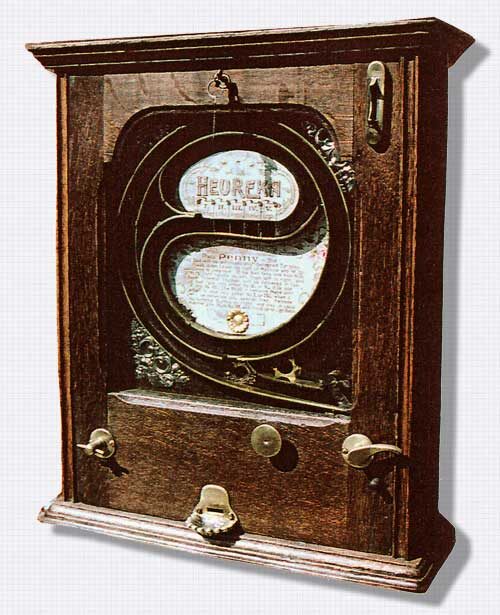
One of the first, if not the very first Allwin was the "Heureka" made in Germany around 1900, photos of these machines are rare and my thanks to Richard Goddard for this photo
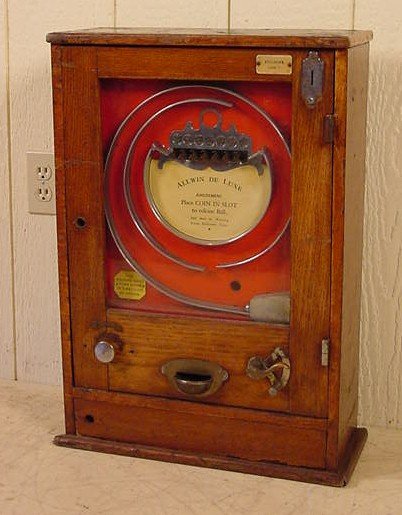
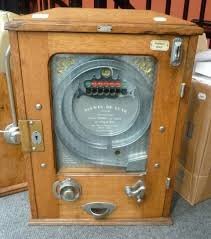
These Allwin De Luxe machine were pretty much the standard in the early 20th cent
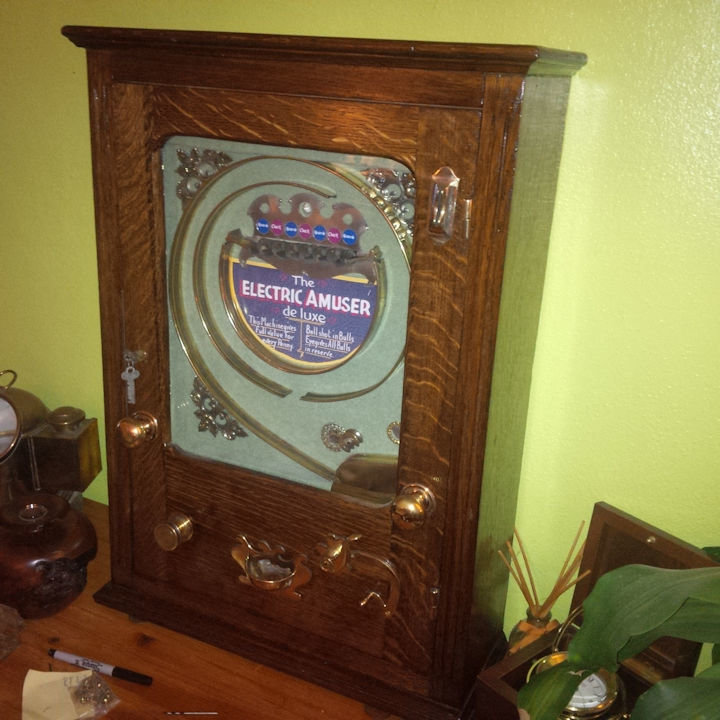
Although following the basic design of the early machines this beautifully made "electric Amuser" from around 1915 incorporated two features intended to increase player interest extra balls added to a win and a sharp electric shock delivered through the brass knobs
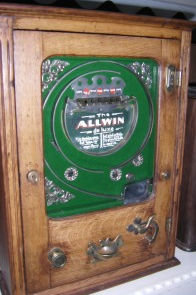
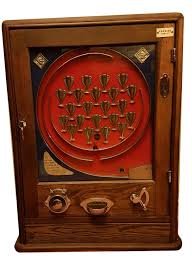
Following the success of the first machines the makers were soon making changes to keep the public interested, one of the first advances was to add more cups in more positions and this became common practice for pre WW2 machines
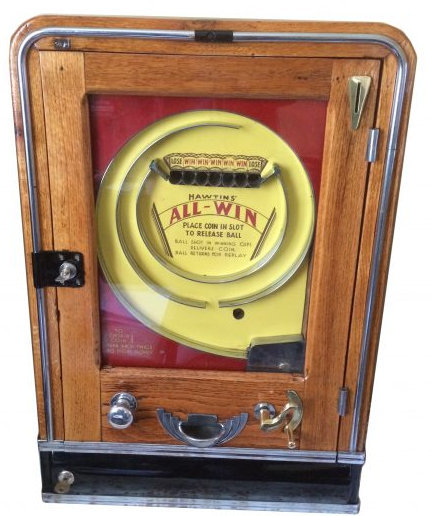
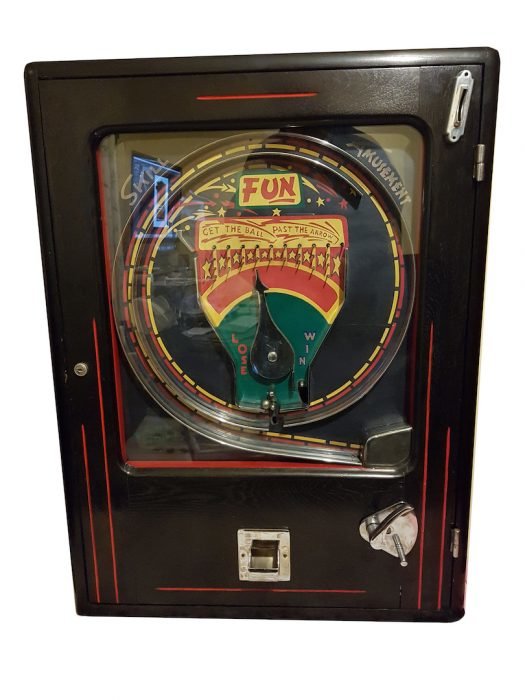
Hawtins "All-Win" mid-1930's Brenner "Ball past the arrow" 1937
By the eve of the second world war the British Allwin makers were clearly taking the lead in both cabinet design and additional features, the "past the arrow" feature was an attempt to persuade the player to spend another penny.
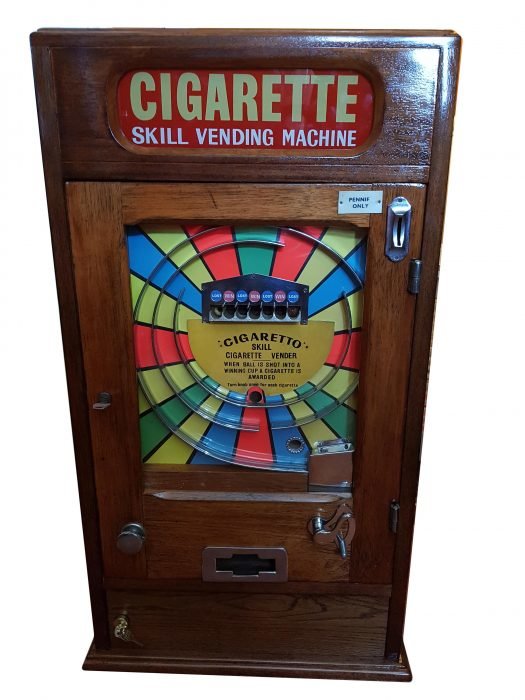
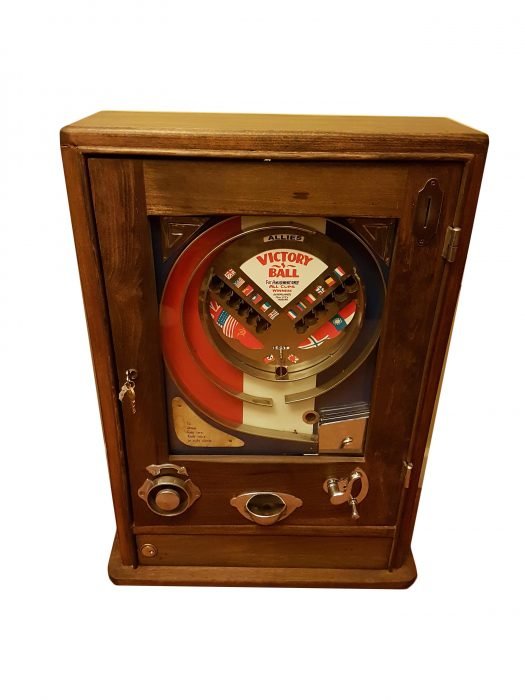
Morris Shefras "Cigaretteo" 1940's Oliver Whales "Victory Ball" 1946
From 1939 till 1945 the slot makers were for the most part doing war work but as it became clear the war was coming to an end they were quick to prepare to launch machines following the end of hostilities
After the war there was a huge increase in cigarette smoking (as there had been following WW1) and machines paying one cigarette were a new twist. The Shefras machine above may have been an attempt to avoid gambling laws as it uses two terms often used to convince the authorities the machine was not a gambling machine "skill" & "vending machine"
This rarely seen "coinacig" by Wonders Ltd had the rare option of the player being able to choose his prize, a penny or a cigarette, see it in action.
(this youtube video is one of many excellent slot videos produced by supershotbattymanbor one of the hobbies most notable enthusiasts.
All these early post-war machines were beginning to show a more colourful outlook and this would become more pronounced over the next few years along with another twist..the theme.
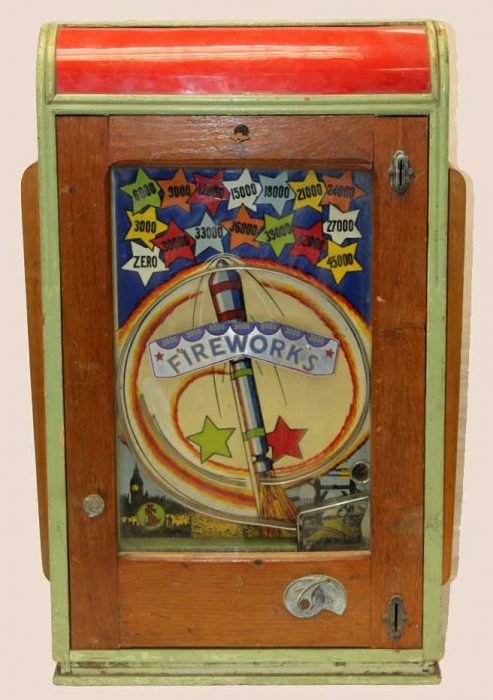
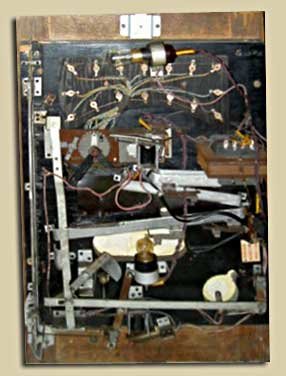
This "fireworks" allwin was made by Stevenson & Lovett in the 1940's and was ahead of its time in two ways, it had a definite "theme" and it was partly electronic.
By the early 1950's the makers who would become the big names in Allwin machines were really getting geared up as this type of machine became the standard in UK arcades.
Bryans of Kegworth
In 1953 Bryans entered the field with their "5 win" & "Pilwin play". William Bryan had been making unusual and very successful slot machines for 25 years and the 12 or so allwins(including multi-machine units) he produced from 1953 till the late 60's are amongst the most sort after in the slot collectors world. Bryans chose not to go down the theme route (the "pilwin was the closest to a theme) but stuck to the classic style using brightly coloured backgrounds and , sometimes, unusual mechanical features. ALL deserve a photo here.
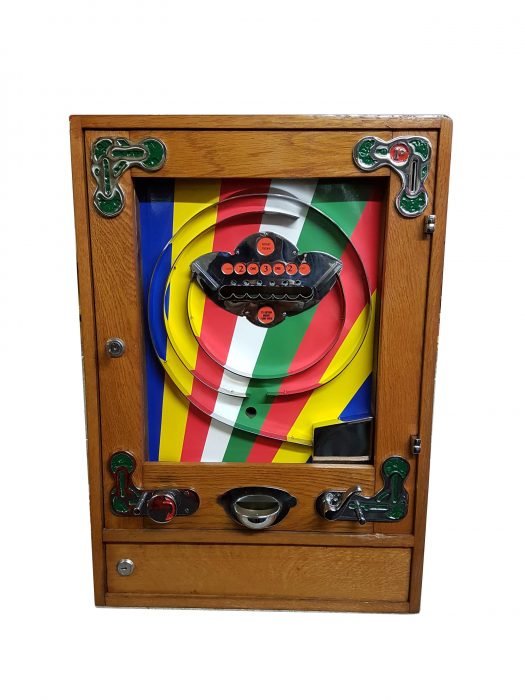
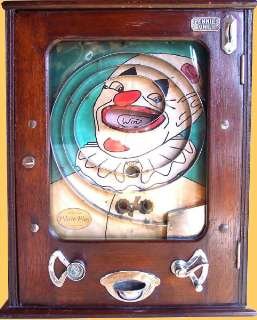
"FiveWin" 1953 "PilwinPlay
These machines are sometimes found in other makers cases,Bryans sometimes used old allwin cases in the early days from other maker's machines they had taken in part exchange.
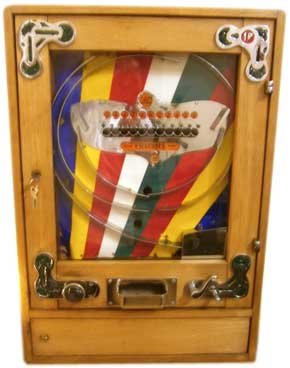
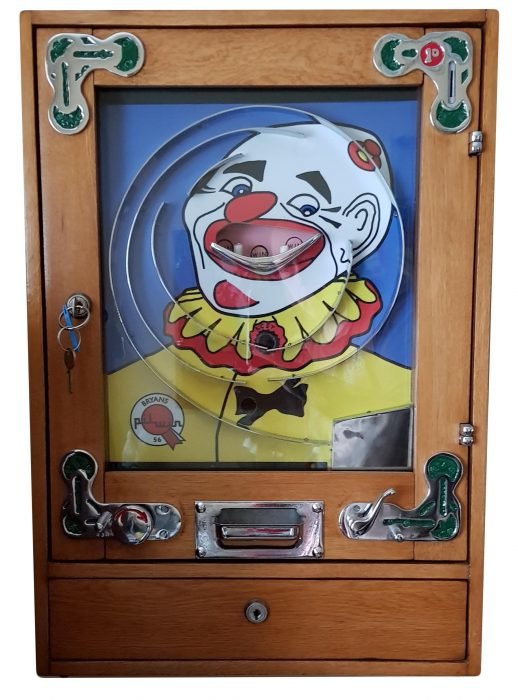
The "Elevenses" 1955 the more advanced "Pilwin 56"
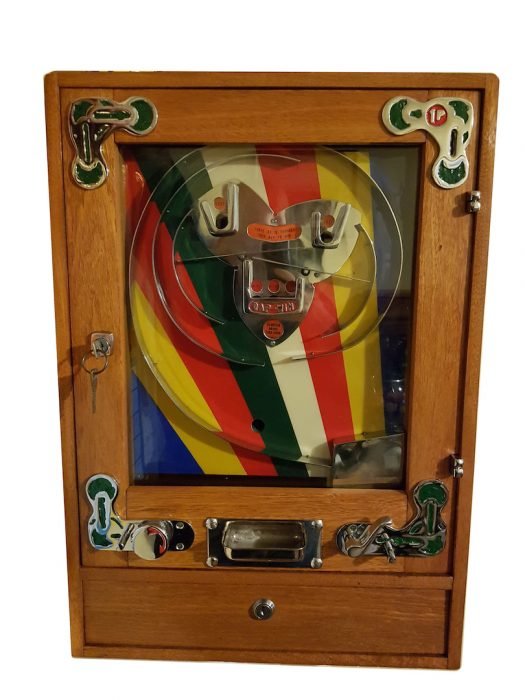
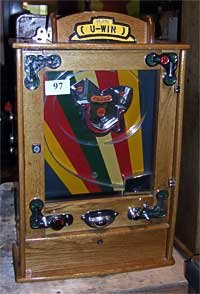
The "Gapwin" 1956 The "Uwin"
Bryans released 3 machines in 56 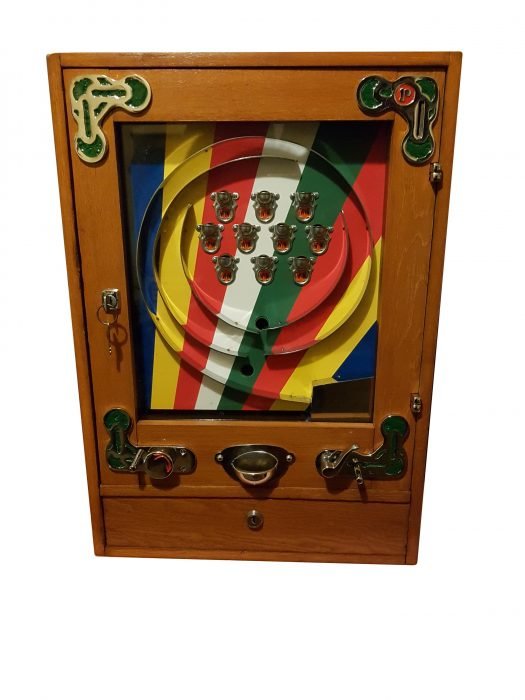 the unique gapwin & Uwin plus the very traditional style "Tencup"
the unique gapwin & Uwin plus the very traditional style "Tencup"
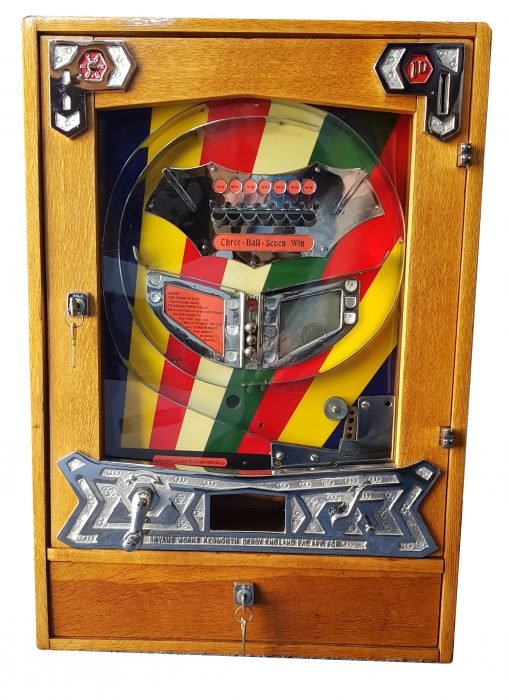
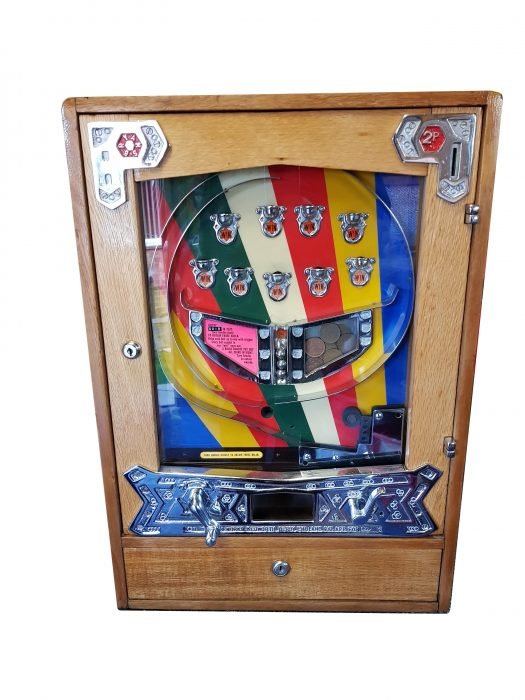
"3 ball ,7win" 1961 "3 ball,9 cup"
after a 5-year break, 3 new machines 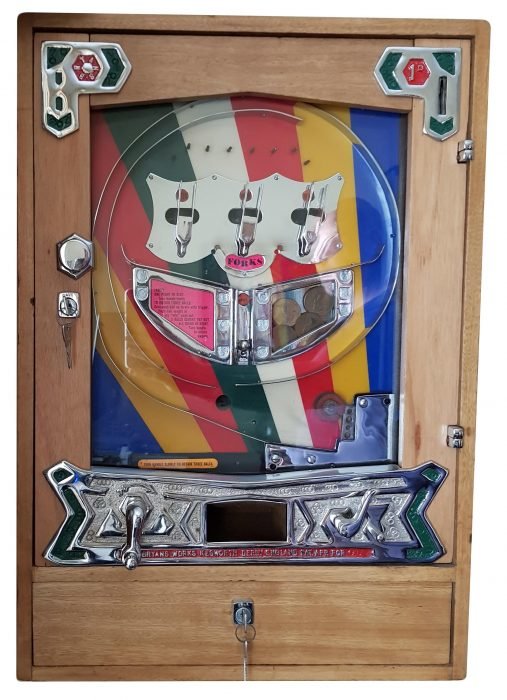 came out in 61 including "Forks"
came out in 61 including "Forks"
These were the last of the true Allwins from Bryans,William Bryan retired in the late 1960's but the company did produce one more allwin style machine, The "double top" two-player allwin in 1970
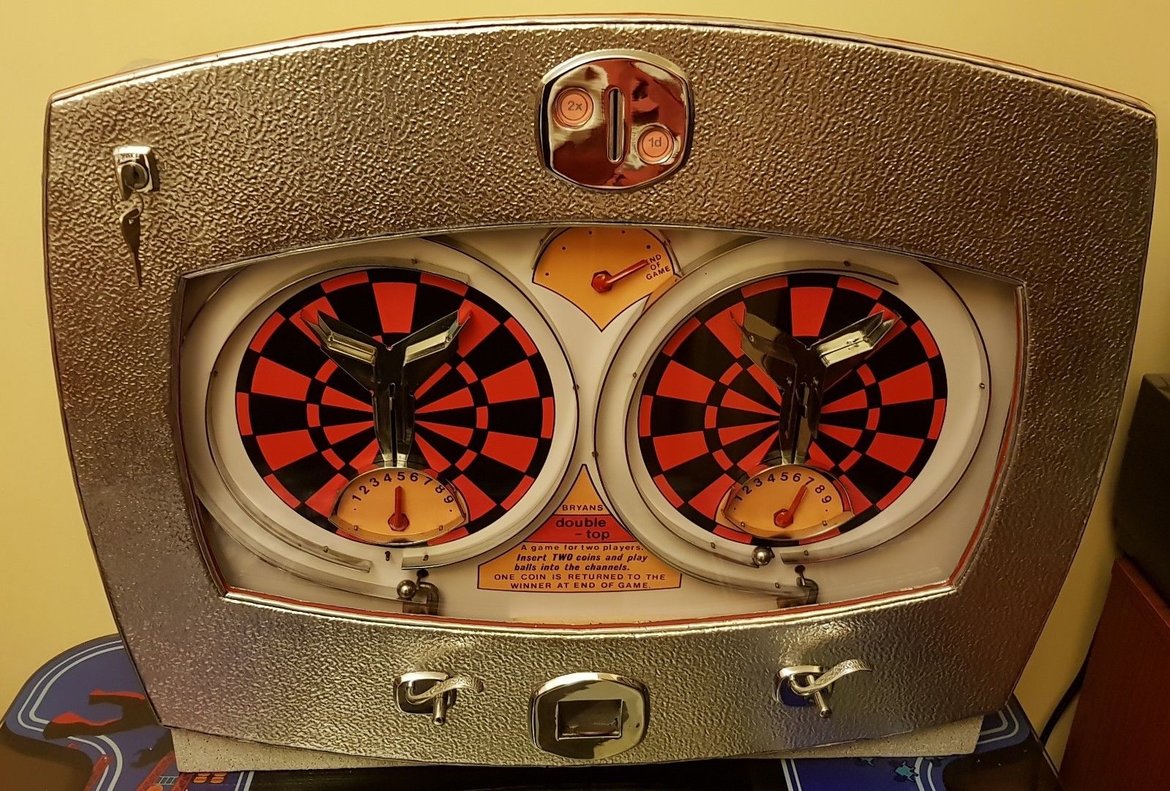
"Double top" 1970
Oliver Whales of Redcar
Appearing on the allwin scene early on with a standard style of machine by the mid 1950's Oliver Whales had become, perhaps, the most prolific Allwin maker of all. He produced around 50 different machines all with brightly coloured backflashes and, usually, a definite "theme" These themes ranged from other gambling pass times such as the football pools, horse racing etc to comic characters such as "Chad". He also led the way in allwins that gave a prize rather than coins, popular sweets of the day used on Whales machines included Cadburys, Spangles, Aero, Smarties and many more. Other machines gave a small item in a box such as a key ring, pack of cards etc., and, of course, there were machines that paid out cigarettes. Whales machines were not made to quite the high standard of Bryans and the coloured backflashes particularly have often suffered from the passage of time, the cases are usually very well made and often have a pleasing rounded edge shape. Oliver Whales, in an attempt to keep costs down, did not go in for complex mechanics and once he perfected a mechanism for a type of machine he stuck to it. Whales machines are always interesting and fun to play. A few can be seen below and over 40 can be seen on our "Oliver Whales Collection" page.
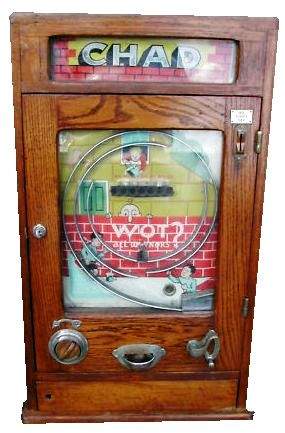
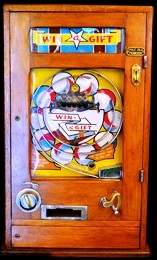
"Chad" "Win a Gift"
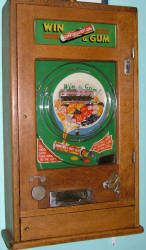
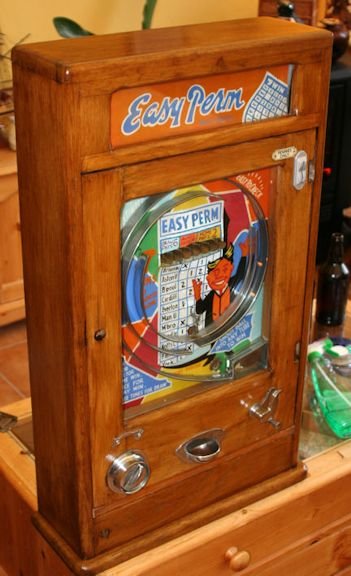
" Win a Gum" "Easy Perm"
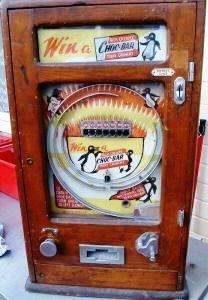
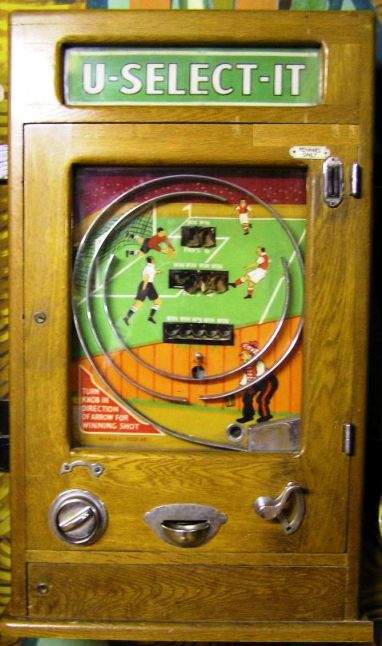
"Win a Choc Bar(Penguin?" "U Select It"
Wondermatics
Wondermatics was a small but busy business making allwins from the 50's. The company was run by Jack Glover from his premises in north London. They were, I think, the only ones to make a giant allwin 24 cup machine. Their machines were well made and are very collectable today. Wonders often tried something new either in ball track .payouts or winning methods and it paid off, their machines were exported to several countries in the 50's and 60's.
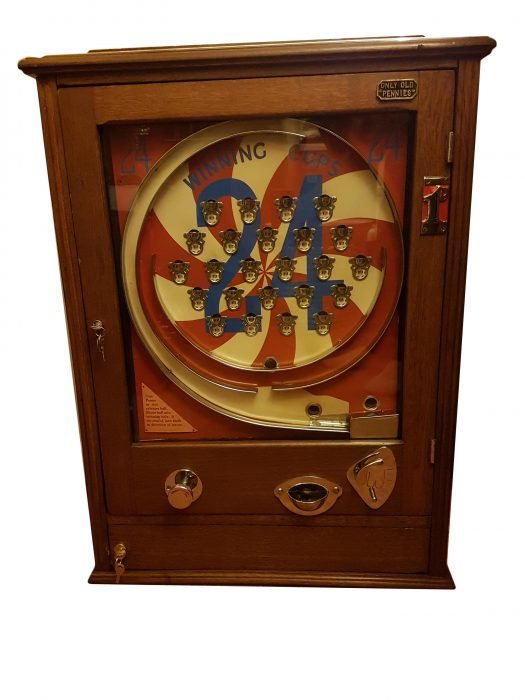
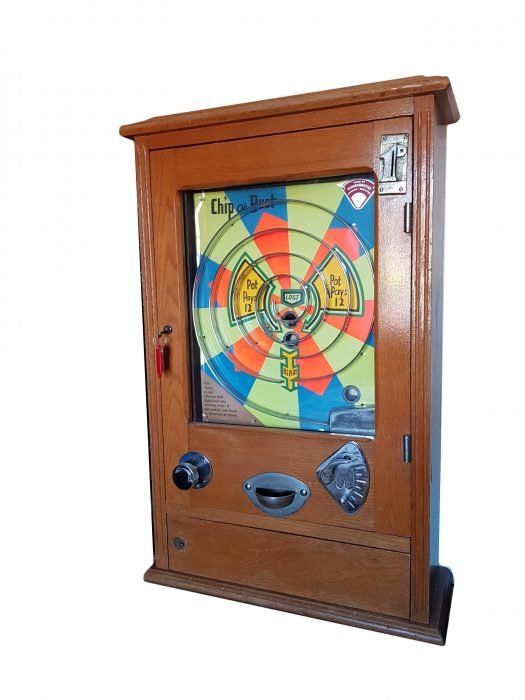
The giant "24" cup "Chip or bust" with its unusual playfield
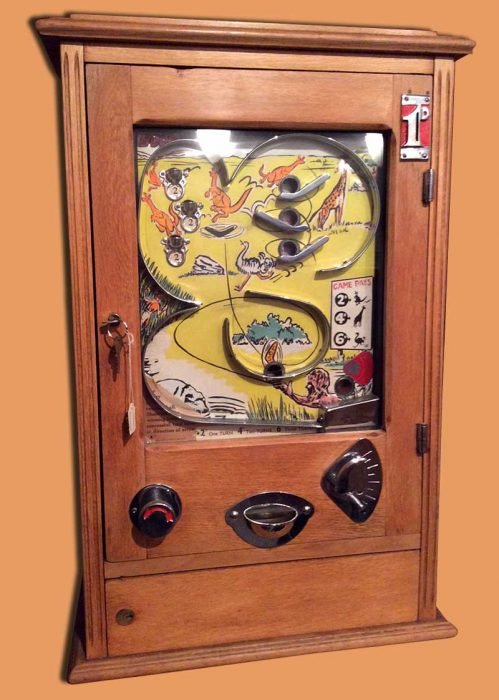
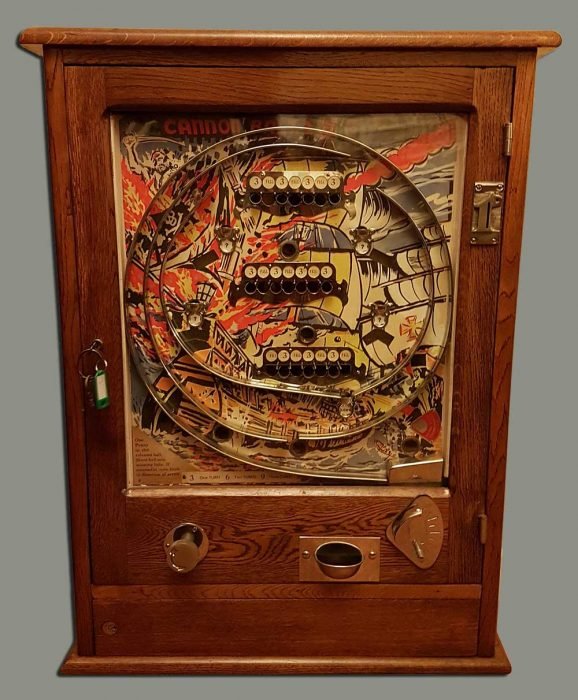
The "Boomerang" with its complex ball track Another Gaint Allwin the 25 cup "Cannonball"
Wonders are known to have been exported to Australia
perhaps this model had that market in mind
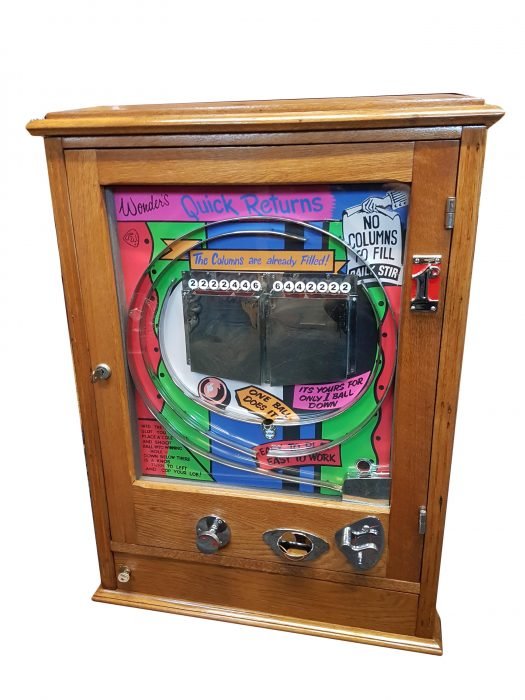
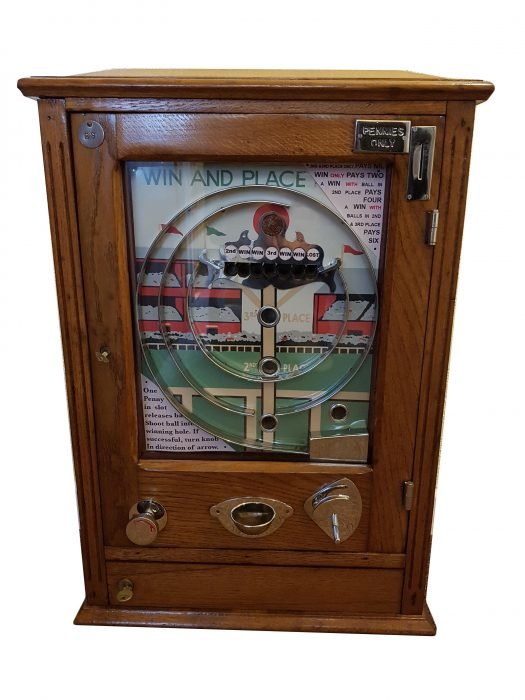
The "quick returns" was an attempt to counter "win & Place" this machine used the promise of
the popular Ruffler & Walker "Many happy returns" increased future payouts to keep the player playing
Parkers
A fuller history of the very successful Parkers Co can be found on our "Parkers collection" page. As far as their allwins go it's fair to say they were the Rolls Royce of the allwin world. The quality of the production was second to none and their art deco style case is a joy to behold. They didn't, for the most part, go in for unusual play features but some of their machines must be the most beautiful of all the allwins and fetch high prices from today's collectors. They did produce their machines in a more standard case but even this was of high quality.
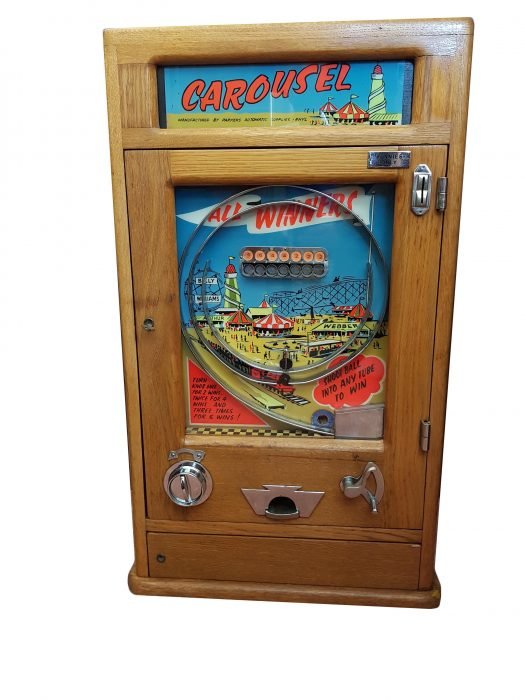
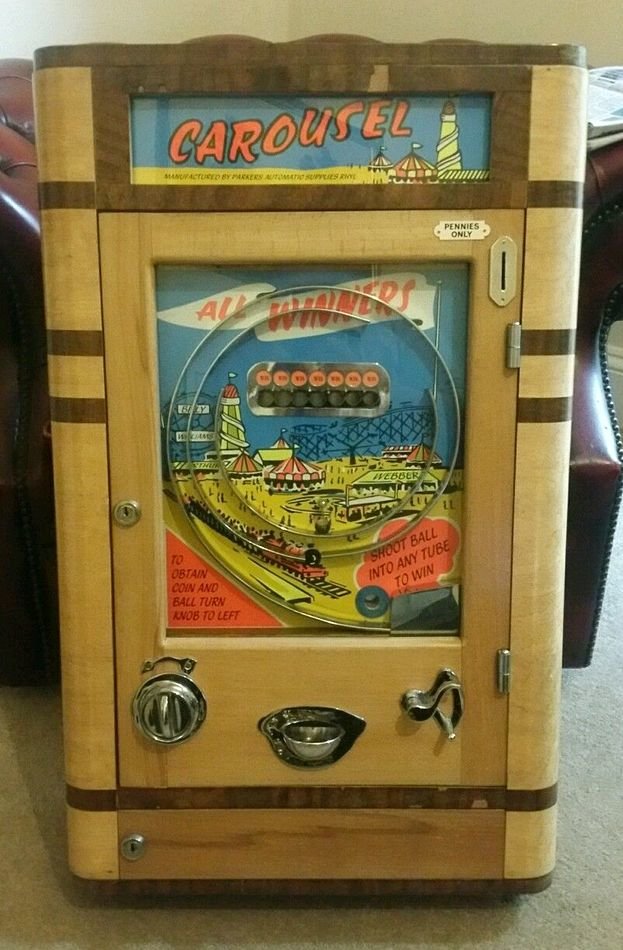
"Carousel" is Seen here in both the standard case and the lovely Art Deco style case
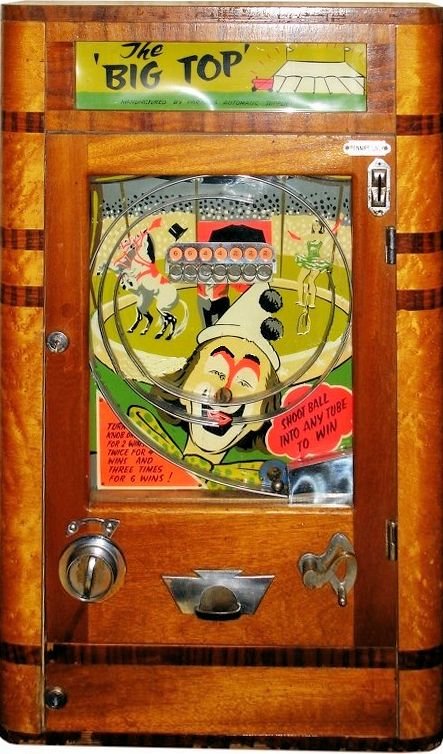
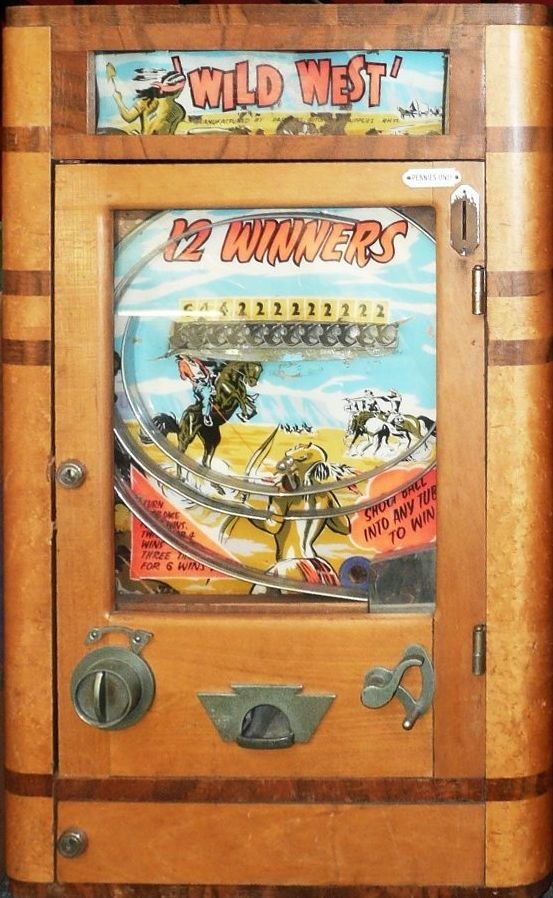
"Big Top" "Wild west"
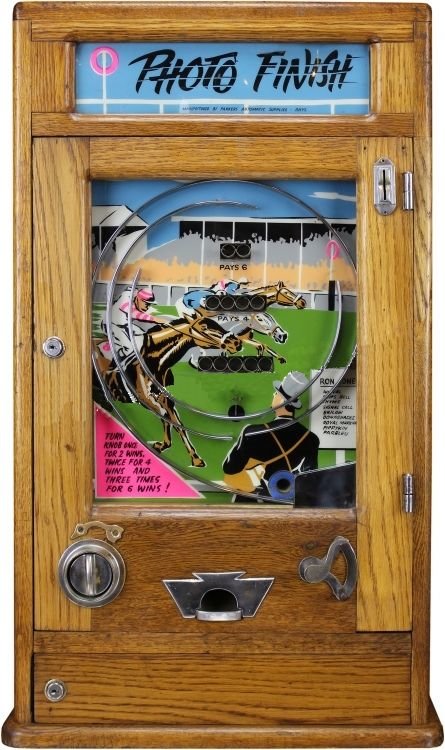
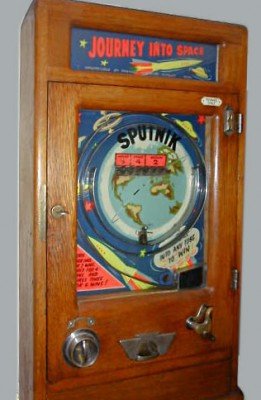
"Photo finish" in a nice standard case The first satellite in space caught the public's attention
and Parkers were quick to capitalise on it
Ruffler & Walker
R & W were primarily slot machine and Jukebox suppliers ( see our "Ruffler & Walker page)but they also made a very successful range of Allwins many of which were much larger than the standard Allwin, these are usually known as "giant" allwins and in these R&W led the way.
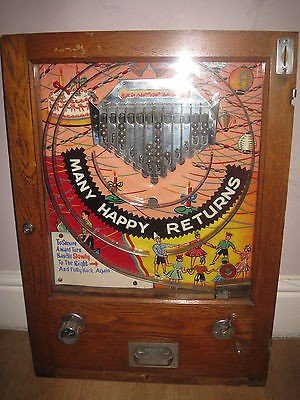
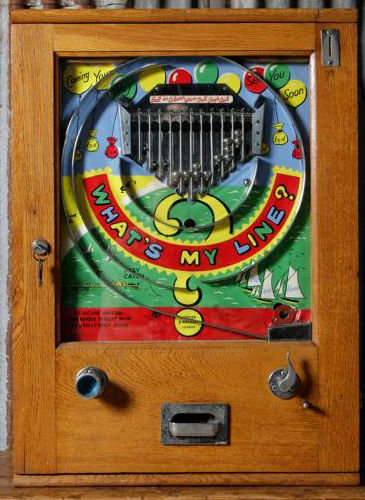
R&W came up with this very successful type of Allwin which encouraged players to keep playing with the promise of increased future wins. One of their giant size machines it can be found in at least four designs
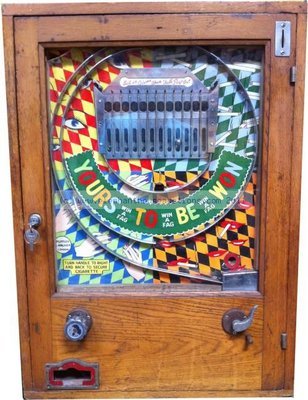
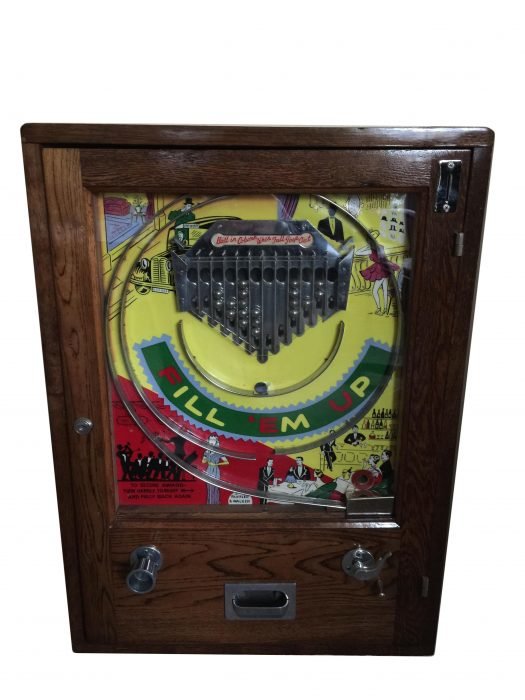
.
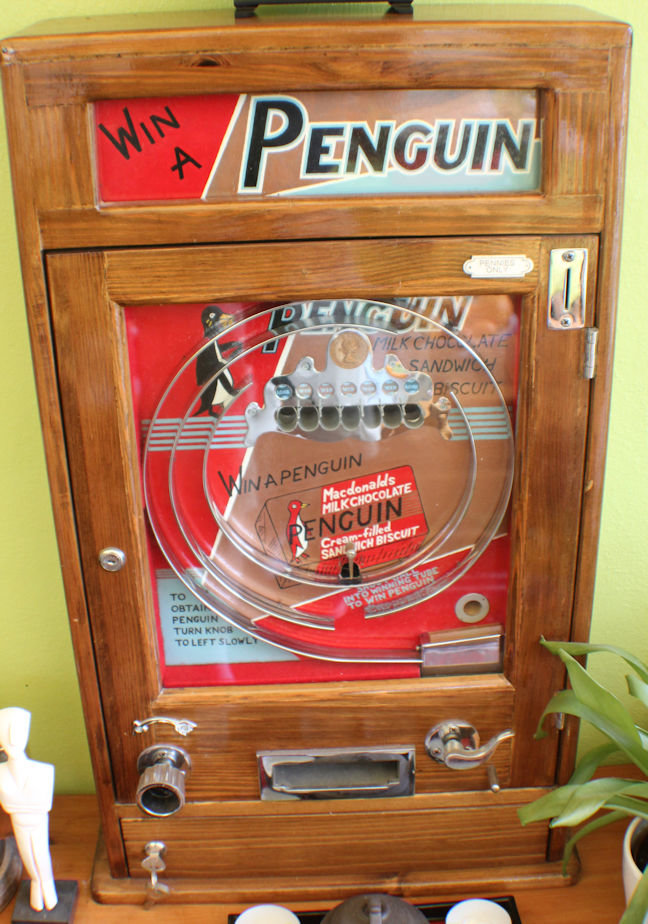
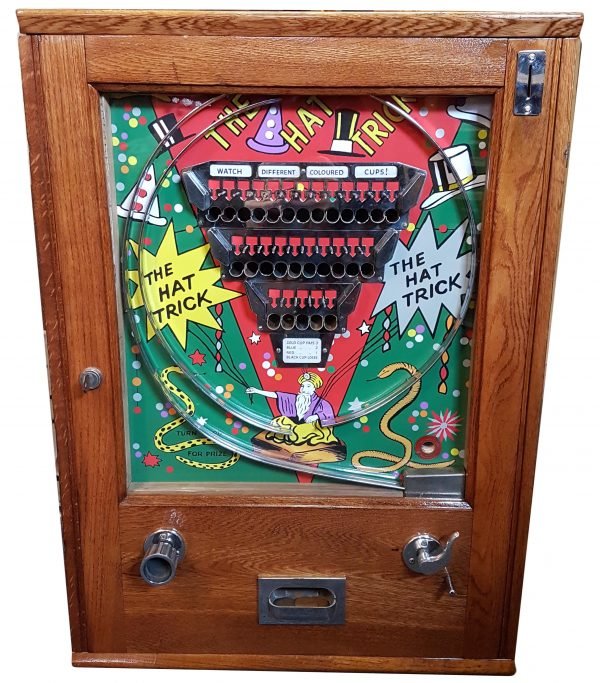
The ever-popular "win a "Penguin" another innovative machine was the "Hat Trick" which allowed
the operator to easily change the payout ratio
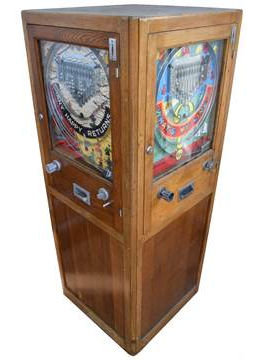
This four-sided giant allwin console would have caught the eye in any arcade in its day
Morris Shefras
Like R&W Morris Shefras were based in London and were more involved in slot machine supply and conversion than actually making machines but, also like R&W, they did produce a limited number of allwins, some with interesting features
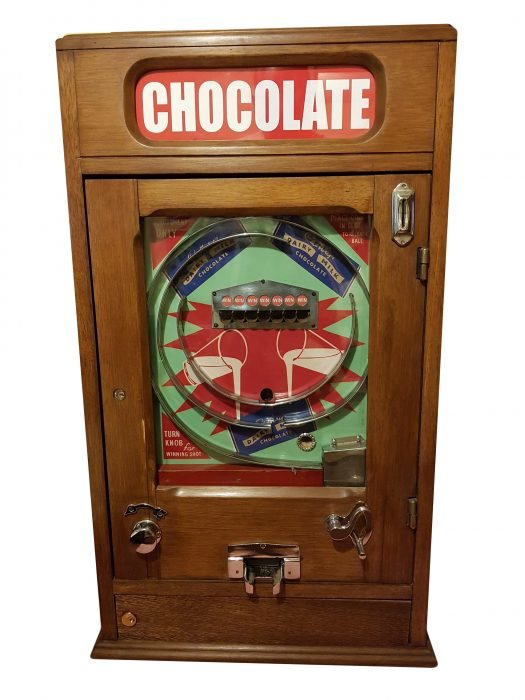 .
. 
Chocolate & Cagaretto well made cases with improved mechanisms but they lack the excitement of their Rivals
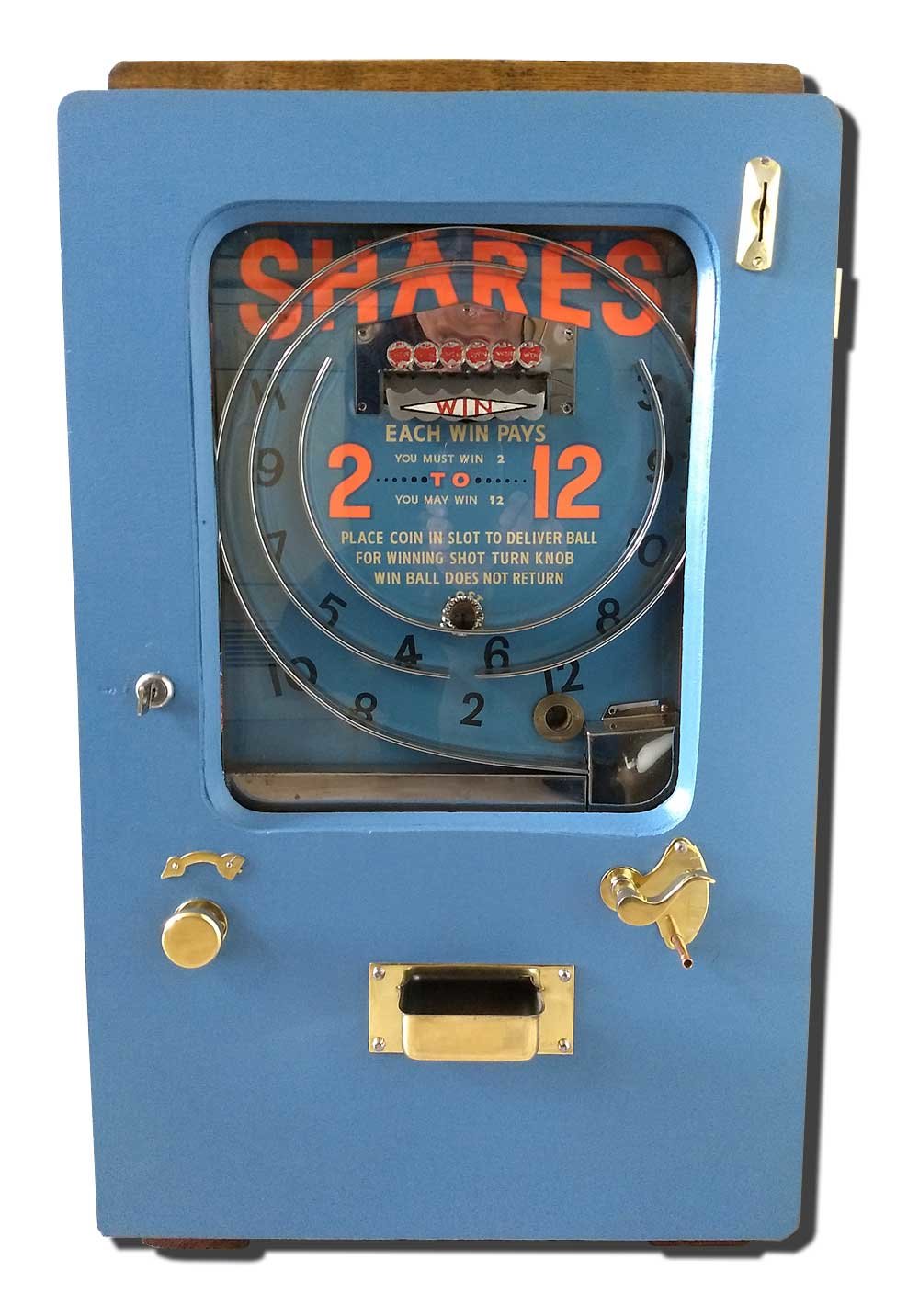
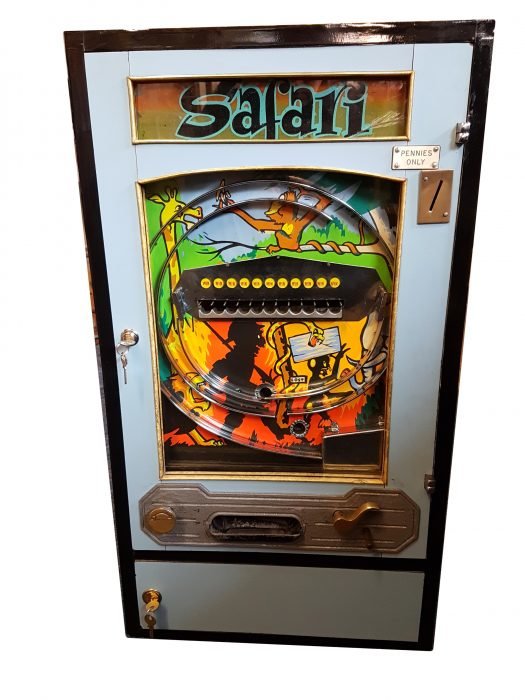
"Shares" & "Safari" were more 60's than 50's and indeed "Safari" came out under Philip Shefras name
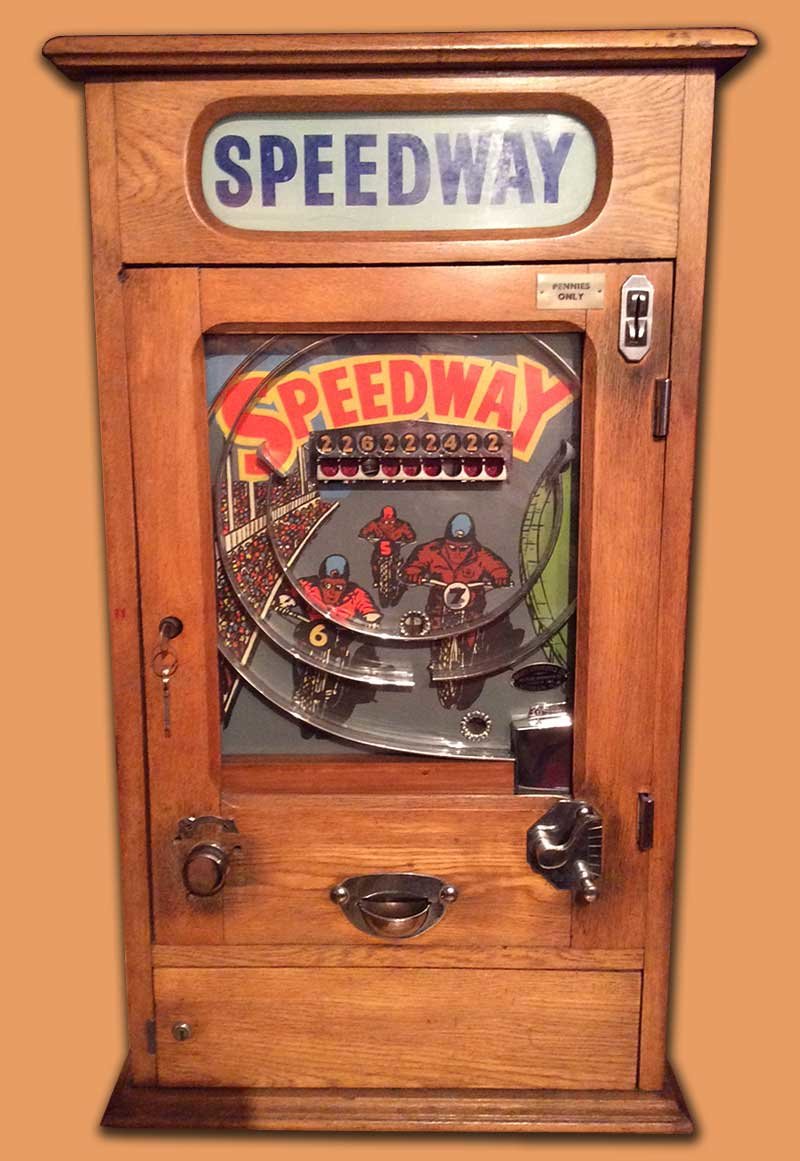
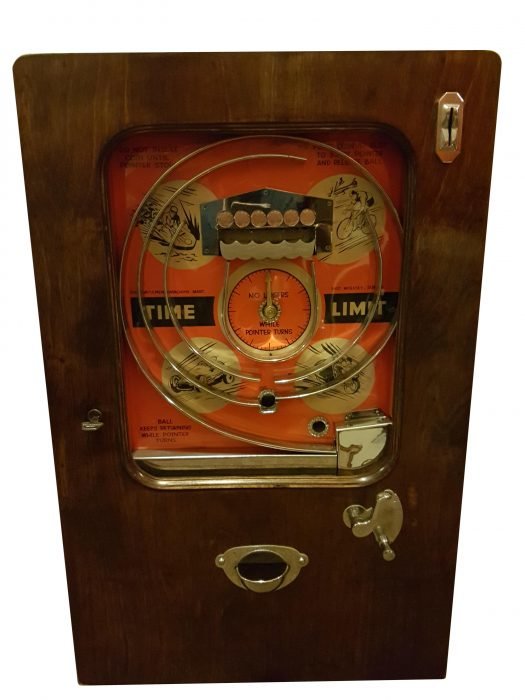
"Speedway" surprisingly this was the only Allwin themed The much sort after "Time Limit" in which the player
on this spectator sport that was bigger than football got unlimited plays while the clock ran
in the early 50's
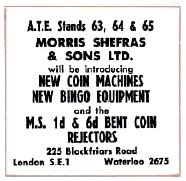
BMCo
In many ways, The British Manufacturing Co was the father of the British Allwin. during the 1930's they made a large number of different designs incorporating several new ideas such as auto payouts and may have been the first to use plastic playfields. Although very well made many of the models were made in small numbers and some designs may have disappeared altogether. Unfortunately, the company did not survive the war. Often recognisable by their typically 30's top pediment.
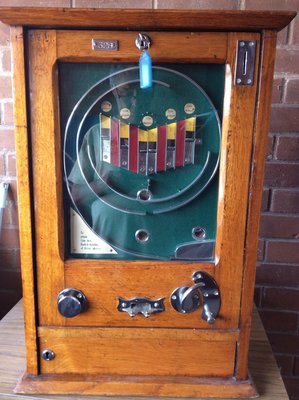
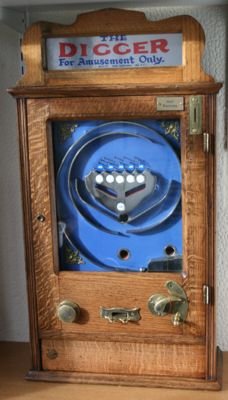
This rather nice machines name is unknown as yet The "Digger" may have been their most popular machine and can be found in several variants
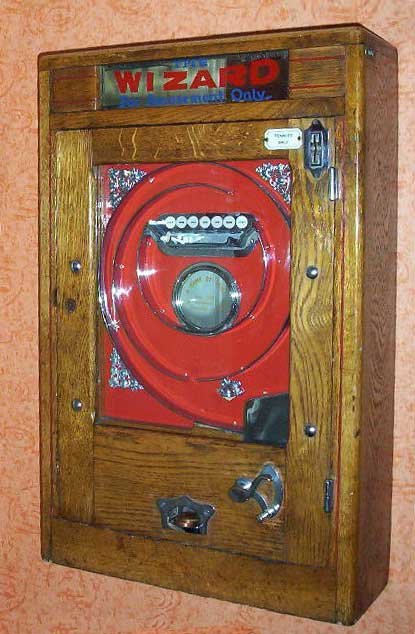
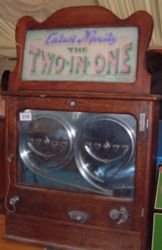
This "Wizard" shows just how well these were made The strange"Two in one" a single-player game with two tracks
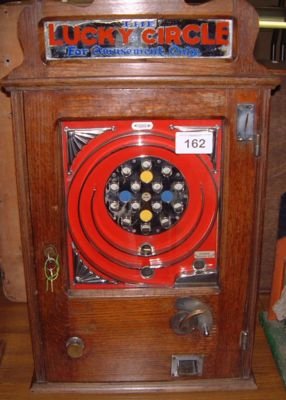
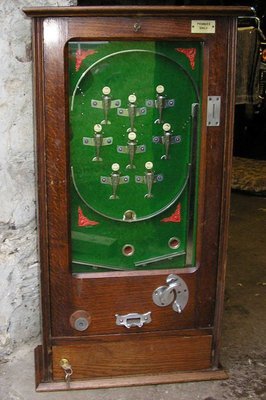
Lucky Circle & an unnamed model, two machines using individual cups, something BMCo may have been the first to use
